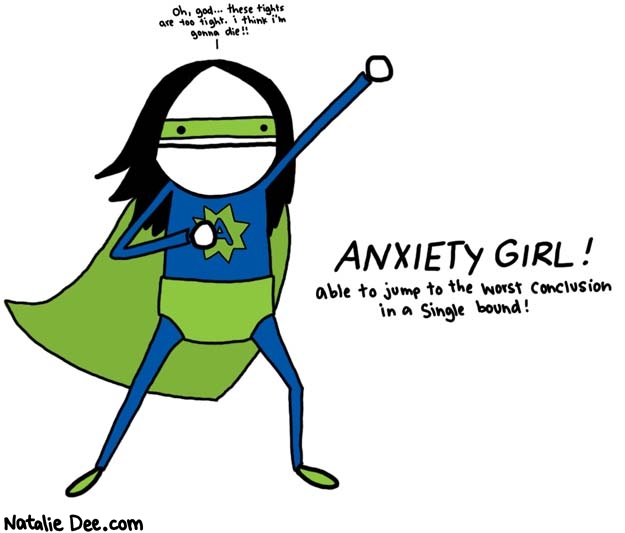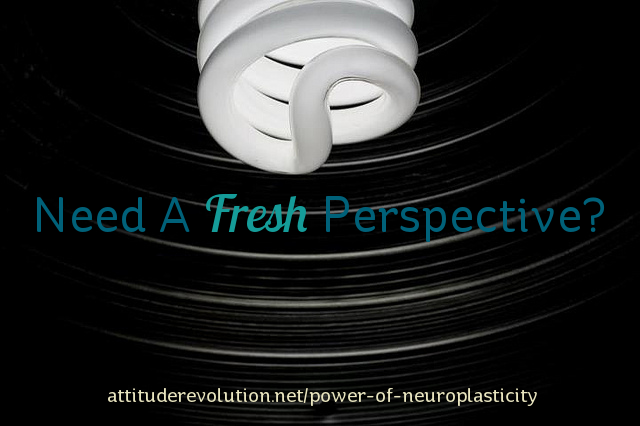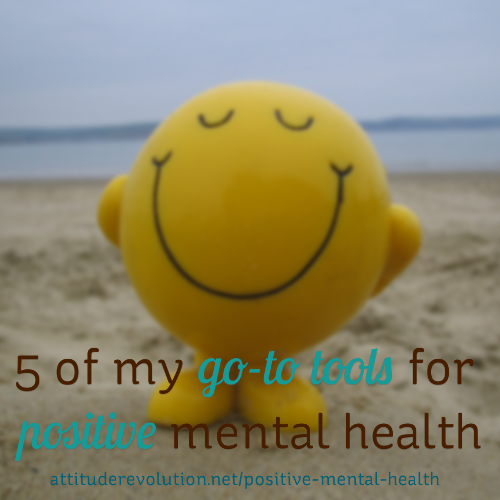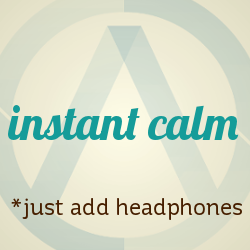
Ahh Natalie Dee. You said it girl!
“Why do I keep doing that?!” was my catchcry for many years.
I couldn’t understand why I kept doing the things I didn’t want to. The things that were standing in the way of my goals, of my dreams, of my happiness.
Why did I keep eating junk food when I was trying to lose weight? Why did I keep biting my nails even though it hurt? Why did I keep injuring myself when I exercised?
Do any of these sound familiar?
The thing is, all of my actions were coping mechanisms. Sure I didn’t like them - but they actually served a purpose.
They helped me cope with overwhelming anxiety.
And I didn’t have any other methods to address it.
Luckily, these days I’ve got a bit of an arsenal to help me. Don’t get me wrong. I’m not perfect. I haven’t got this epic perspective that means I never reach for a cookie when I’m stressed.
But the more I practice using the ‘good tools’ vs the ‘damaging tools’ - the easier my life is.
Here are my top six coping mechanisms that I’ve used over the years plus some other tools that have helped me to replace them. - click to tweet
Hopefully by shedding some light on them, you’ll be illuminated too ![]()
Coping Mechanisms That No Longer Serve
Overeating
This is my top one as food is pretty much my drug of choice. Whenever I feel stressed, tired, happy, nervous, bored, ecstatic etc etc - my reflex is to reach for something to shove in my gob.
Food is everywhere. Think of every single activity we do as a group, and you bet there’s food involved. Parties, weddings, funeral wakes, office morning teas. We bond over sharing a meal. For me food is linked to just about every emotion I can think of.
Overtraining
I used to use exercise as punishment for overeating. And then I’d feel awful and go eat something. Vicious cycle much?
I’ve written before about how overtraining can lead to some pretty damaging outcomes. As a Personal Trainer it helped me a lot to see that part of muscle growth is rest. In fact, muscles don’t grow when you’re working out. They grow as you rest during the days after the workout.
Fingernail Biting
Sometimes I used to sit on my hands to stop myself biting my nails. Sometimes when I was watching TV my partner would pull my hands out of my mouth, only for them to drift back up a few seconds later.
It was mindless auto-pilot fretting in physical form.
Calorie Restriction
At uni, friends and I called them ‘No Food Days’. Problem was, by the end of the day I’d be so famished I’d usually end up going home and bingeing (see point one). When I’d put on weight I’d try to restrict or diet, get hungry and fed up, give up, binge, overtrain, feel fat and awful, try to restrict or diet…
You get the picture.
Obsessively Planning
I’m the queen of lists. When I used to go camping with friends I was the girl scout of the group who always had a torch, a first aid kit, extra toilet paper, extra blankets, etc etc.
And there ain’t nothing wrong with being prepared.
But sometimes when I’m particularly nervous about all the myriad of events happening in my life, I tend to double up on lists. Sometimes triple up. I spend so much time planning all the things I have to do, that I’ve got less time to actually do them.
Looking for trouble
When overwhelm hits I go running around looking for trouble. And I don’t mean trying to get into fisty cuffs. I mean I go searching for other things that I could possibly worry about too. It is a vortex of doom.
I turn specks of dust into molehills and molehills into mountains. I would have anxiety about my anxiety.
*Panic stations everyone.*
~~~~~~~~
So if all these coping mechanisms are borne from anxiety, the tools to replace them are ones that actively address anxiety…
Better Tools That Serve You Completely
Intuitive Eating
IE has been an excellent tool to help me learn how to understand when I’m truly hungry and when I’m feeling ALL the feelings. Because unless you’re physically hungry, food will not be the solution. Otherwise you’re not craving food, you’re craving connection.
If emotional eating is something you really struggle with, this post might also be helpful.
Yoga / Reformer Pilates
Pretty much the antidote to the crazy, high intensity workouts I used to push myself through. (PS I still like to workout hard occasionally, but my intention is much better).
Yoga and Reformer Pilates help me to reconnect to my body in such a joyful way, riding each breath and moving with grace. I feel full of energy and light after a good session.
Mindfulness
This has been an excellent tool to help me with fingernail biting. It’s been a difficult habit to break, and one I still sometimes do. But when I practice mindfulness the biting disappears naturally.
Kinesiology
Another mind-body practice, Kinesiology again helps me get to the root cause of emotional blocks that are stored in my body. We are such psycho-somatic beings, that often what helps the body helps the mind, and vice versa.
In Brisbane, my favourite Kinesiologist is Melissa Sandon. If you’re elsewhere in the world, ask around for a recommended practitioner.
Diaphragmatic Breathing
Take a deep breath right into the bottom of your belly. Now slowly exhale through your mouth.
Feel better already?
It is impossible for you to feel anxious while breathing deeply. By using your diaphragm you’re activating your parasympathetic nervous system (PNS) - the one that is on when you’re relaxed. The PNS triggers positive physiological changes such as lower blood pressure and yummy, happy neurotransmitters such as serotonin and dopamine.
Meditones
Dah doi. You knew this one was coming didn’t you? ![]()
Meditones helped me as a beginner to access those deep states of bliss everyone was always on about. Now I combine my other meditative practices like mindfulness and pranayama (breathing exercises) whilst using meditones to really enhance my practice.
~~~~~~~~
What about you? What coping mechanisms have you replaced with awesome anxiety-reducing techniques? Let me know over on the Facebook page where lots of discussion happens.
Got a friend with anxiety? Let them know about this post. These tools could really help them out.


